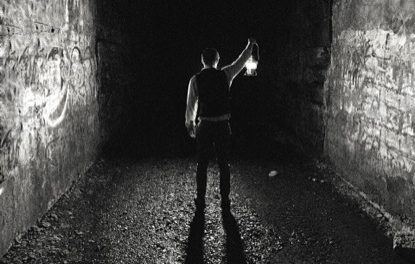February 5, 2012 ~ Fifth Sunday in Ordinary Time
Job 7:1-4, 6-7; Ps 147:1-2, 3-4, 5-6; 1 Cor 9:16-19, 22-23; Mk 1:29-39
“Praise the Lord, who heals the brokenhearted.”
The responsorial psalm from this Sunday’s readings is a fitting link between the misery of Job that we encounter in the First Reading and the healing works of Jesus in Mark’s Gospel. Yet, it may do us some good to postpone the healing for a bit and contemplate exactly what it means to be brokenhearted.
Job is reeling from the obliteration of his property, his children, and his health.
So I have been assigned months of misery, and troubled nights have been allotted to me. If in bed I say, “When shall I arise?” then the night drags on; I am filled with restlessness until the dawn.
Job’s words throb with a deep and agonizing longing. But it is empty longing in a way, because that which he desires – relief and consolation – can no longer be imagined as possible. The reading ends with his devastating conclusion: “I shall not see happiness again.”
In Job, we get a glimpse of the brokenhearted, a glimpse of the one who is devoid of all hope. As February 14th approaches and a few aisles of every card store turn into parades of red and pink, we might be apt to think of the brokenhearted as the one who has lost a great love. However, the gaping wound that is overtaking Job’s very being is not fundamentally the loss of love. Indeed, his love likely continues with great vigor (and thus, his great suffering). What is fundamentally lost and broken is the virtue of hope.
St. Thomas Aquinas speaks of the virtue of hope as a kind of leaning on the aid of God. It is a remarkable image. And so perhaps we could say that the heart is where we thrust our very selves beyond our own self-sufficiency. It is the place of immense vulnerability where we balance our existence on the pillar of God’s unmerited grace. For Job and for all the brokenhearted, the problem is not that the pillar has crumbled but that the shock and pain of grief have caused them to recoil back and stand alone, unsupported and on one’s own clay feet. The folly of presumption comes to those who quickly acclimate and believe they are as well off as before. And those who lose the memory of the pillar, no longer able to imagine it is there for them, are the ones who fall into the folly of despair. If we are honest with ourselves, both options are daily within our reach. And once in despair, once brokenhearted, the way out seems murky indeed.
To heal the brokenhearted is surely the work of God’s grace. And it is the recurring motif of all of salvation history. In the midst of utter alienation and estrangement, God interrupts and teaches us again how to lean on divine aid.
In the city detention center I visit, the men speak regularly of this sort of interruption. They lament the inevitable downward spiral that occurs when they recoil from God and live on mere self-reliance. Their folly of despair is all very human, no different from that of others on the “outside.” But in their refreshing honesty about this human struggle, there is often a grace that helps them to begin to lean on God once more.
So praise, indeed, the Lord who heals the brokenhearted. And wise, indeed, are the ones who recognize their hearts as breakable.




